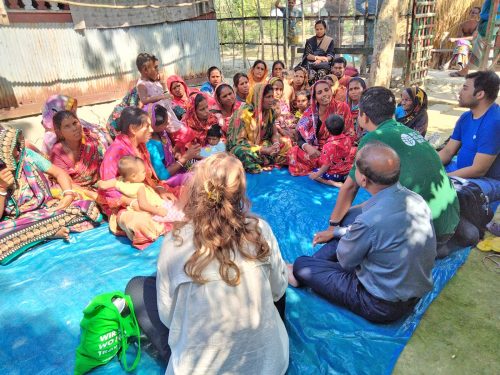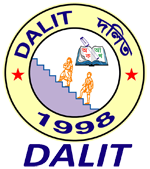Improving Health and Nutritional Conditions through Systematic and Evidence-based Solutions for Marginalized Communities
Project Location: Banishanta Union of Dacope Upazila, Khulna
Project Period: December 2024 – November 2025
Financed by: German Doctors e.V.
Total Amount: BDT 12,049,880.00
Direct Beneficiaries: 9,245

Under the project ‘Improving Health and Nutritional Conditions through Systematic and Evidence-Based Solutions for Marginalized Communities’, health camps will be conducted to provide health services at the village level, through which free medical services and medicines will be provided. Health awareness-raising meetings, workshops to increase accessibility to social safety net services, meetings with community clinics, upazila health service institutions, workshops on safe water use, organizing public hearings on health systems in coastal areas, etc, will be conducted. In addition, nutrition camps will be conducted for malnourished children; the establishment/construction of nutrition gardens; the development of sustainable and integrated agricultural models; and awareness-raising sessions on smart agricultural technologies related to climate change will be conducted for local farmers and community members. That is, this project has been undertaken to bring health services to the doorsteps of villagers, ensuring proper use and management of water, meeting the nutritional needs of villagers, and enhancing the skills of farmers to cope with the impacts of climate change.
Objective(s)
-
To improve the quality of demand-based health services for the people of 10 villages of Banishanta Union and ensure their food security and nutrition.
Activities:
- Training of local healthcare providers
- Training of 20 volunteer health workers (Health Sisters)
- Awareness training and exchange meetings for teenage women and girls
- Implementation of training courses to improve access to state social benefits
- Implementation of health camps
- Establishing a referral system for emergency patients, especially pregnant women and severely malnourished children
- Creating an advocacy agenda
- Quarterly sensitization meetings for health service providers in the Dacope district
- Organization of public discussion forums to discuss and improve the health system in coastal areas
- Knowledge exchange on proven approaches and findings in the WASH sector
- Creating sustainable vegetable gardens for households with malnourished children
- Establishment of 10 model gardens based on the “Sustainable, Integrated Farming System” (SIFS) approach
- Implementation of nutrition camps for cases of acutely malnourished children
- Organizing a food and cooking fair at Union and Upazila level
- Conduct awareness-raising training on “climate-smart” agricultural technologies for local farmers and community members
- Networking meetings with the departments of agricultural extension, livestock services and fisheries


